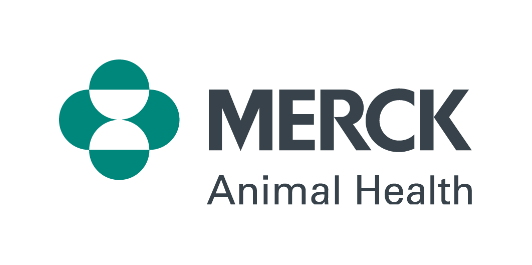New Data Show MSD Animal Health’s Porcilis® Porcine Reproductive and Respiratory Syndrome (PRRS) Vaccine Effective Against Various Strains of Asian PRRS Virus
PRRS Vaccine and Other Swine Herd Health Data Presented at 6th Asian Pig Veterinary Society Congress in Vietnam
SUMMIT, NEW JERSEY, 26 September 2013 – MSD Animal Health (known as Merck Animal Health in the USA and Canada) presented new data showing that MSD Animal Health’s PRRS vaccine is effective against different strains of the PRRS virus in Asia. The PRRS virus causes reproductive and respiratory disorders in the swine population worldwide and can result in severe economic losses. The vaccine and other swine herd health data were presented at the 6th Asian Pig Veterinary Society Congress held in Ho Chi Minh City, Vietnam from September 23-25.
“Because there are two distinct genotypes of the PRRS virus, there has been uncertainty amongst many farmers about which strain they should vaccinate against,” said Rika Jolie, DVM, PhD, Global Technical Director, MSD Animal Health. “We are pleased to share data supporting the efficacy of MSD Animal Health’s PRRS vaccine against these different genotypes.”
One study tested the efficacy of MSD Animal Health’s Porcilis® PRRS in two Japanese farms endemically infected with the Type 2 strain of the virus. The study found that vaccinated pigs had fewer clinical signs and higher average daily weight gain after being exposed to this strain of the virus, compared to a non-vaccinated control group.
Another study of more than 200 pigs in Thailand compared the effect of Porcilis® PRRS and a Type 2 vaccine on levels of the cytokine Interleukin-10, which is reported to increase the severity of clinical disease associated with the PRRS virus. Twenty-one (21) days post-vaccination, pigs vaccinated with MSD Animal Health’s Porcilis® PRRS had lower levels of IL-10-producing cells compared to pigs vaccinated with another vaccine and a control group that was not vaccinated.
A Vietnamese study tested the efficacy of MSD Animal Health’s Porcilis® PRRS vaccine against two local PRRS field-types that caused losses from death and culling between 41 and 67 percent in 2010. In the study, sows and gilts were vaccinated twice, with four months between doses, and piglets were vaccinated once at 14-21 days old. After vaccination, a subset of pigs were challenged with either the HN10 or DN12 PRRS strain, which originate from North Vietnam and South Vietnam, respectively. The study found that Porcilis® PRRS reduced fever, improved daily feed intake, and reduced the severity of microscopic lesions.
An additional study presented at the symposium included serology results from pigs in three Philippine farms. According to the study results, both Type 1 and Type 2 antibodies were present in each of the farms, a significant finding considering that farmers choose PRRS vaccines based on the virus genotype present in their farm.
“Porcine reproductive and respiratory syndrome causes significant losses in the pig industry due to reproductive disorders and growth retardation,” said Robert Barclay, Vice President, Asia Pacific, MSD Animal Health. “In addition to vaccines and medicines, MSD Animal Health is committed to protecting and supporting the health of swine by providing other products and solutions that support fertility and help farmers control disease.”
About MSD Animal Health
Today’s Merck is a global healthcare leader working to help the world be well. MSD Animal Health, known as Merck Animal Health in the United States and Canada, is the global animal health business unit of Merck. MSD Animal Health offers veterinarians, farmers, pet owners and governments one of the widest range of veterinary pharmaceuticals, vaccines and health management solutions and services. MSD Animal Health is dedicated to preserving and improving the health, well-being and performance of animals. It invests extensively in dynamic and comprehensive R&D resources and a modern, global supply chain. MSD Animal Health is present in more than 50 countries, while its products are available in some 150 markets. For more information, visit www.merck-animal-health.com.
Merck forward-Looking Statement
This news release includes “forward-looking statements” within the meaning of the safe harbor provisions of the United States Private Securities Litigation Reform Act of 1995. These statements are based upon the current beliefs and expectations of Merck’s management and are subject to significant risks and uncertainties. If underlying assumptions prove inaccurate or risks or uncertainties materialize, actual results may differ materially from those set forth in the forward-looking statements.
Risks and uncertainties include but are not limited to, general industry conditions and competition; general economic factors, including interest rate and currency exchange rate fluctuations; the impact of pharmaceutical industry regulation and health care legislation in the United States and internationally; global trends toward health care cost containment; technological advances, new products and patents attained by competitors; challenges inherent in new product development, including obtaining regulatory approval; Merck’s ability to accurately predict future market conditions; manufacturing difficulties or delays; financial instability of international economies and sovereign risk; dependence on the effectiveness of Merck’s patents and other protections for innovative products; and the exposure to litigation, including patent litigation, and/or regulatory actions.
Merck undertakes no obligation to publicly update any forward-looking statement, whether as a result of new information, future events or otherwise. Additional factors that could cause results to differ materially from those described in the forward-looking statements can be found in Merck’s 2012 Annual Report on Form 10-K and the company’s other filings with the Securities and Exchange Commission (SEC) available at the SEC’s Internet site (www.sec.gov).
